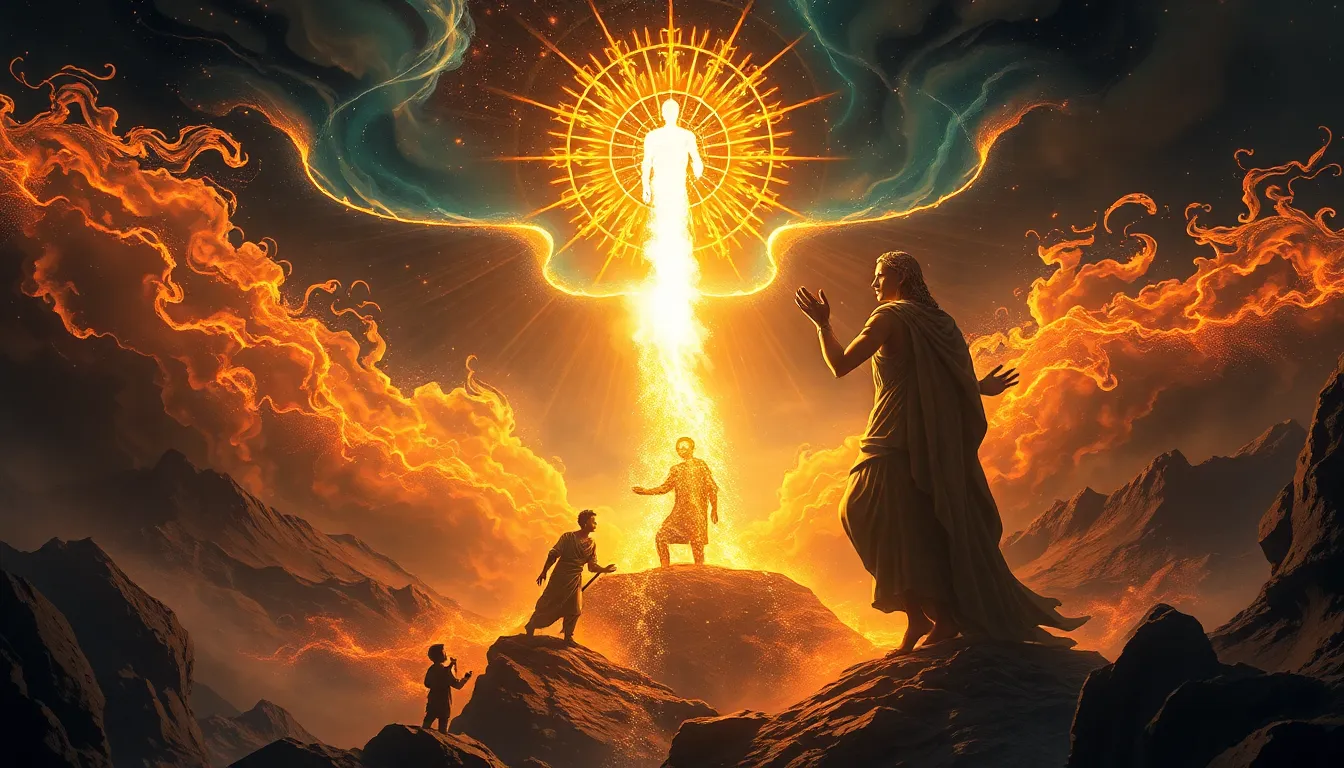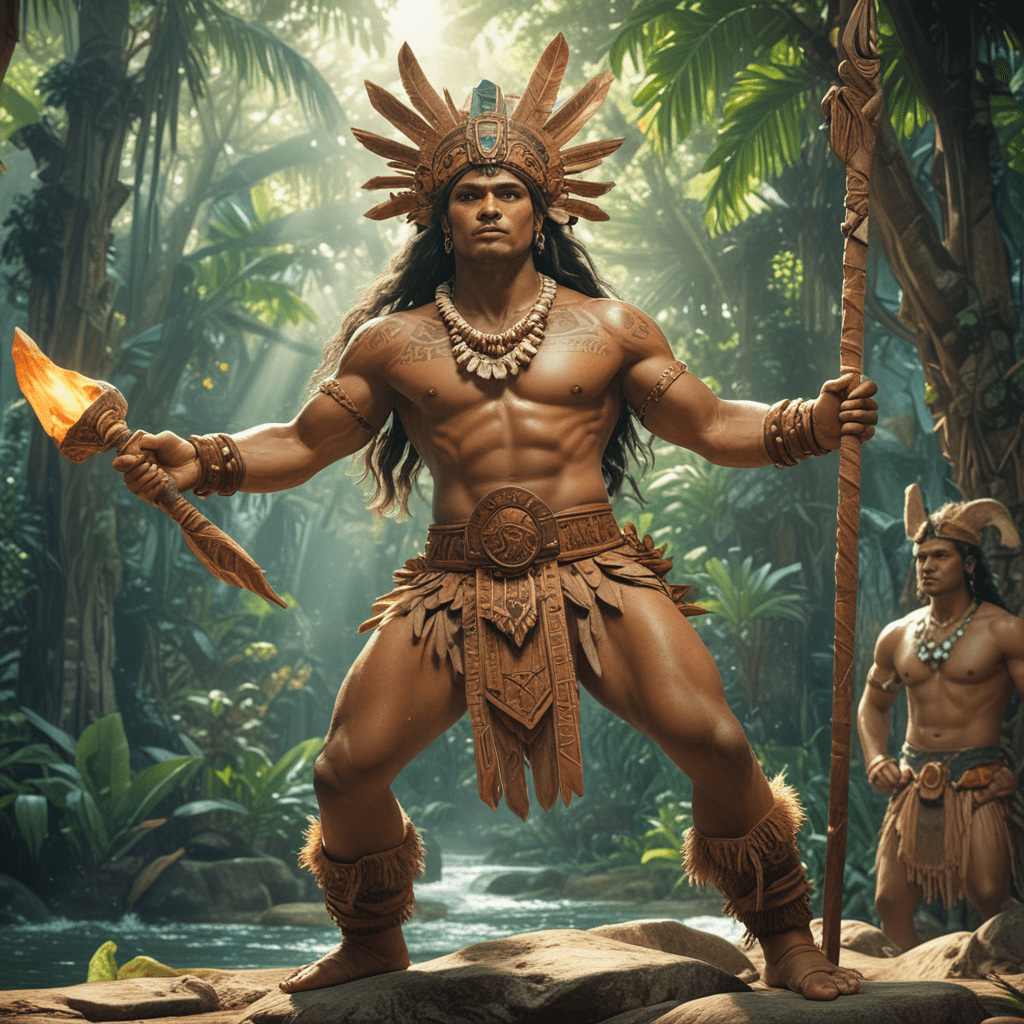The Birth of the Divine: Creation Myths That Inspire Faith
1. Introduction: Understanding Creation Myths
Creation myths are foundational narratives that explain the origins of the universe, humanity, and the natural world. These stories, rich in symbolism and cultural significance, are integral to various societies, serving not only as religious texts but also as vehicles for conveying values, traditions, and worldviews. By exploring creation myths, we gain insight into the beliefs that shape different cultures and the universal questions that connect humanity across time and space.
The significance of creation myths extends beyond mere storytelling; they provide frameworks for understanding existence, morality, and the cosmos. Through these narratives, societies articulate their identity, purpose, and relationship with the divine, making them vital components of cultural heritage and faith.
2. The Universal Themes of Creation
Across diverse cultures and religions, several universal themes emerge in creation myths. These themes often include:
- Chaos to Order: Many creation myths begin with a chaotic state, from which order emerges through divine intervention.
- The Emergence of the Divine: The presence of a creator or multiple deities is a common element, often depicted as shaping the cosmos and life.
- Life and Death: Creation narratives frequently address cycles of life, destruction, and rebirth, illustrating the ongoing nature of existence.
These themes not only reflect the cultural context in which they arise but also resonate with fundamental human experiences, offering insight into the nature of existence and the divine.
3. Creation Myths from Major World Religions
3.1. Judeo-Christian Perspectives
The Genesis creation narrative is central to Judeo-Christian thought, describing how God created the world in six days and rested on the seventh. This story has profoundly influenced Western philosophy, ethics, and views on humanity’s role in creation. The themes of divine authority and stewardship over the earth are pivotal in shaping moral frameworks within these traditions.
3.2. Hindu Cosmology
Hindu cosmology presents a cyclical view of creation, where the universe undergoes endless cycles of creation, preservation, and destruction. Deities such as Brahma (the creator), Vishnu (the preserver), and Shiva (the destroyer) play crucial roles in this cycle. The concept of ‘Samsara’ emphasizes the interconnectedness of all life, encapsulating the belief that creation and destruction are part of a larger, eternal process.
3.3. Indigenous Creation Stories
Indigenous creation myths, such as those from Native American cultures, often emphasize the relationship between humans and nature. These stories frequently portray the earth as a living entity, imbued with spiritual significance. The creation narratives reflect a deep respect for the environment and highlight the importance of harmony and balance within ecosystems.
4. The Role of Deities in Creation Myths
Deities associated with creation often embody specific attributes and symbolism that reflect their roles in the cosmos. For example:
- Creator Gods: Many cultures feature a singular or primary creator god, symbolizing ultimate authority and power.
- Dualities: Some myths depict dual gods representing opposing forces, such as chaos and order, light and darkness.
- Feminine Aspects: In several traditions, female deities symbolize fertility, nurturing, and the earth itself, emphasizing the life-giving aspects of creation.
These deities not only represent the act of creation but also embody the values and beliefs of the cultures they originate from, influencing human behavior and societal norms.
5. Creation Myths and Their Influence on Culture
Creation myths significantly impact various facets of culture, including art, literature, and social practices. For instance:
- Art: Many artists draw inspiration from creation narratives, depicting scenes of cosmic beginnings or divine figures in their work.
- Literature: Creation stories are often retold in literature, influencing themes and character development.
- Cultural Practices: Festivals and rituals may be rooted in creation myths, celebrating the relationship between humanity and the divine.
Specific cultures, such as the ancient Greeks with their pantheon of gods, or the Maori of New Zealand with their narratives of the earth’s creation, showcase how these myths shape identities and cultural expressions.
6. Interpreting Creation Myths: Literal vs. Metaphorical Approaches
The interpretation of creation myths often falls into two categories: literal and metaphorical. Literal interpretations view these stories as factual accounts of historical events, while metaphorical understandings see them as symbolic representations of deeper truths.
Each perspective carries implications for faith and spirituality:
- Literal Interpretations: These can strengthen faith for believers, providing a concrete foundation for their beliefs.
- Metaphorical Interpretations: This approach may foster a more flexible understanding of spirituality, allowing for personal interpretation and adaptation in modern contexts.
The ongoing debate highlights the dynamic nature of faith and the adaptability of sacred narratives in contemporary society.
7. The Psychological and Sociological Impact of Creation Myths
Creation myths play a crucial role in forming group identity and social cohesion. They provide shared narratives that bind communities together, fostering a sense of belonging and purpose. Psychologically, humans have an innate need for origin stories, seeking answers to existential questions, such as:
- Where do we come from?
- What is our purpose?
- What happens after we die?
By addressing these fundamental questions, creation myths help individuals navigate their understanding of life, death, and the universe, reinforcing social bonds and cultural continuity.
8. Modern Adaptations of Ancient Creation Myths
In contemporary society, ancient creation myths are often reinterpreted and adapted to resonate with modern audiences. This can be seen in various forms of media:
- Literature: Authors like Neil Gaiman and Margaret Atwood incorporate elements of creation myths into their narratives, blending ancient themes with modern storytelling.
- Film: Movies such as “The Tree of Life” and “Prometheus” explore creation themes, inviting viewers to contemplate existence and the divine.
- Art: Contemporary artists use creation myths to comment on current social issues, often reinterpreting traditional stories to address modern challenges.
These adaptations illustrate the enduring relevance of creation myths and their ability to evolve while retaining their core messages.
9. The Future of Creation Myths in a Globalized World
As societies become increasingly multicultural, the blending of creation stories presents both challenges and opportunities. Diverse narratives can coexist, leading to:
- Interfaith Dialogues: Exchange and understanding among different belief systems can foster respect and collaboration.
- New Creation Myths: In response to modern challenges, such as climate change and technological advancement, new narratives may emerge, reflecting contemporary concerns and aspirations.
The future of creation myths lies in their capacity to adapt and reflect the complexities of a globalized world while maintaining their core functions of fostering identity and connection.
10. Conclusion: The Enduring Power of Creation Myths
Creation myths hold a profound place in human history and culture, inspiring faith and offering insights into the nature of existence. They serve as reminders of our shared humanity and the universal questions that transcend cultural boundaries. By appreciating the diversity of creation stories and their underlying messages, we can deepen our understanding of ourselves and the world around us.



